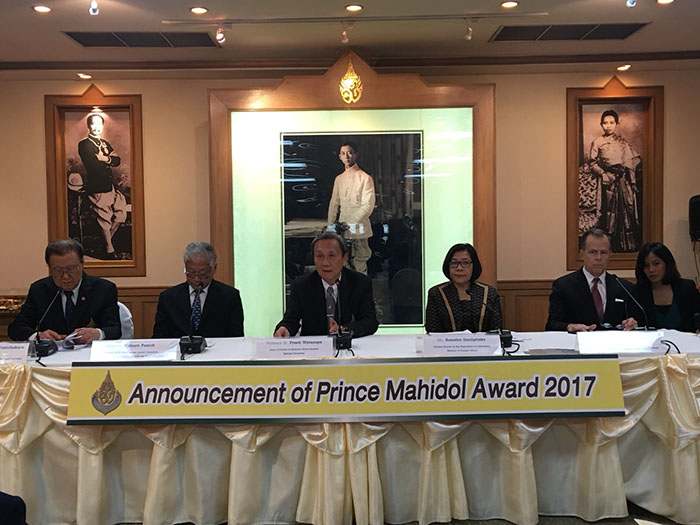Announcement of the Prince Mahidol Award 2017
On November 16, 2017, Professor Dr. Prasit Watanapa, Dean of Faculty of Medicine, Siriraj Hospital, Mahidol University, in the capacity of Vice President of the Prince Mahidol Award Foundation along with Ms. Busadee Santipitaks, Director-General of the Department of Information, Ministry of Foreign Affairs, in the capacity of the Chairman of the Sub-Committee on Public Relations of the Prince Mahidol Award Foundation, and Professor Vicharn Panich, Chairman of the International Award Committee of the Prince Mahidol Award Foundation, attended a joint press conference to announce the 26th Prince Mahidol Award for 2017 at the Prince Mahidol Memorial Room, 2nd Floor, Syamindra Building, Siriraj Hospital.
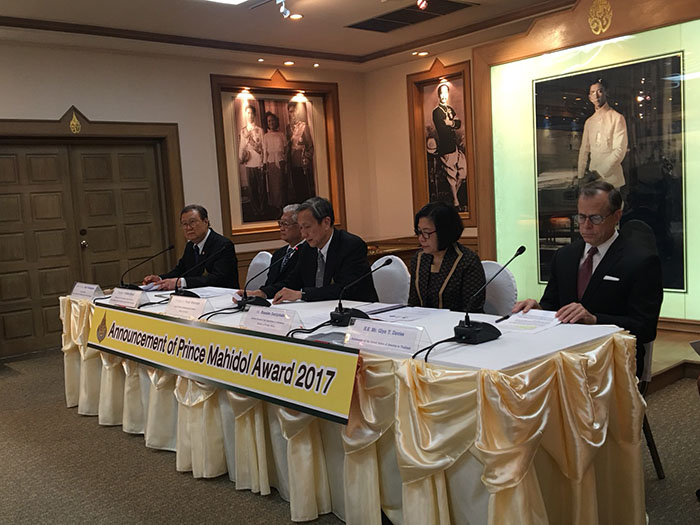
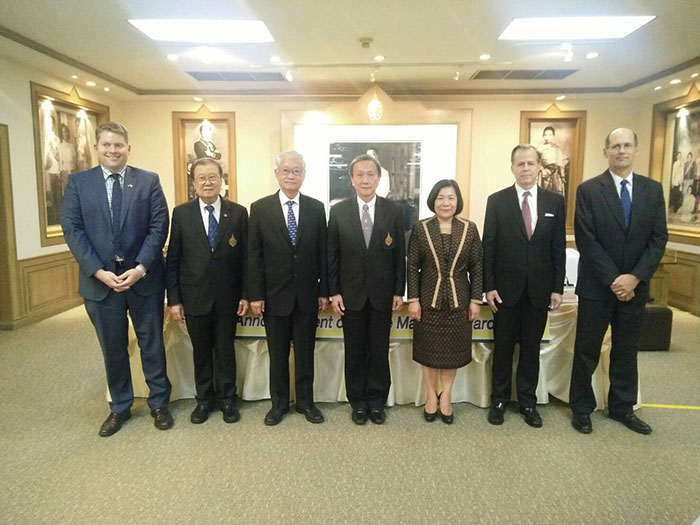

Prince Mahidol Award Laureate 2017
in the Field of Public Health
Professor Porter W. Anderson, Jr.,
Dr. John B. Robbins,
Dr. Rachel Schneerson and
Professor Mathuram Santosham
the United States of America
Since 1970, Professor Porter W. Anderson, Jr. and Dr. David H. Smith of the Harvard University (USA), and Dr. John B. Robbins and Dr. Rachel Schneerson of the National Institute of Child Health and Human Development (NICHD), focused on research to understand the mechanisms of disease and vaccine development for Haemophilus influenzae type b (Hib) as a part of the National Institutes of Health (USA). Hib is one of the core causes of meningitis, particularly in children under the age of five. The disease has a high mortality rate and if not fatal, could result in permanent disabilities. The research teams were the first to introduce the polysaccharide vaccine which is based on a sugar molecule derived from a part of the Hib’s capsule. It was, however, shown that this vaccine was not effective among children younger than 18 months old, the group at most risk of contracting the disease. This is in part was due to the fact that polysaccharides are a weak inducer to boost immunity. They then developed conjugate vaccines, a technique that linked a protein with the polysaccharide to strengthen its immune inducing capacity. The Hib conjugate vaccine was much more effective in younger children and was licensed in 1989 for use on children at the age of 2 months old.
Professor Mathuram Santosham of the Johns Hopkins University studied the epidemiology of Hib. He demonstrated clinically that Hib disease was preventable by immunization and conducted several vaccine trials, which included Hib conjugate vaccines. The results of his studies had a great impact on encouraging the use of Hib conjugate vaccines for all children. Later, he became the leader of the “Hib Initiative” funded by the Global Alliance for Vaccines and Immunization (GAVI). This project has supported the Hib conjugate vaccine as a part of national immunization programs in up to 190 countries.
After the Hib conjugate vaccine was made available worldwide, the incidence of Hib disease and its mortality among young children has dropped as much as 95 – 99%. Millions of children have been saved from Hib disease. Few would have anticipated that by the year 2020, over 7 million lives would been saved due to the use of Hib vaccine.
Prince Mahidol Award (in the Field of Public Health 2017) recognizes the successful efforts of Professor Anderson, Dr. Robbins and Dr. Schneerson in developing the Hib vaccine, from research in polysaccharides to conjugate vaccines which is now being used as a standard for vaccination (Dr. Smith passed away in 1999). The Award also recognizes Professor Santosham as a leader of the Hib Initiative who elevated his scientific discovery into a widely used vaccine among children, especially in many developing countries.
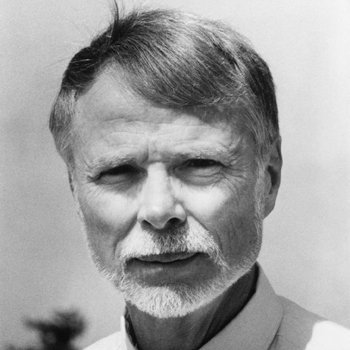
Professor Porter W. Anderson, Jr. received his PhD in Bacteriology from Harvard University. His current position is Professor Emeritus at the Department of Pediatric Infectious Diseases, University of Rochester Medical Center. He was previously Associate Professor at Boston Children’s Hospital Harvard Medical School.
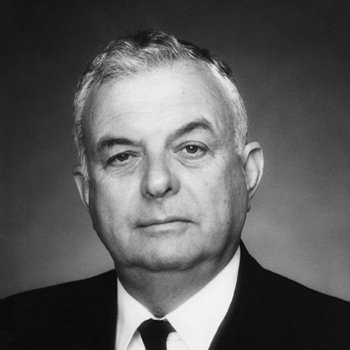
Dr. John B. Robbins received his MD from New York University Medical School. He had Clinical Training at Massachusetts General Hospital, Harvard University in 1961 – 1964, and Graduate Training in Infectious Disease and Immunology at University of Florida. He was Associate Professor of Pediatrics and Immunology at Albert Einstein College of Medicine for 3 years before beginning his career at the Eunice Kennedy Shriver National Institute of Child Health and Human Development, National Institutes of Health, in 1970. He retires in 2012.
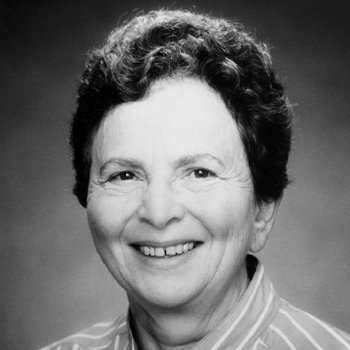
Dr. Rachel Schneerson received her MD from Hebrew University, Jerusalem, Israel, in 1958. She did her pediatrics residency in Israel and later came to the United States to work for the Eunice Kennedy Shriver National Institute of Child Health and Human Development until her retirement in 2012.
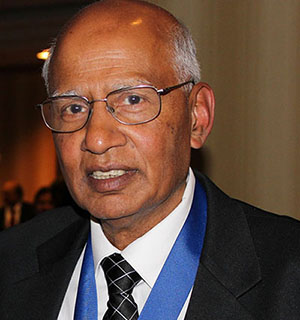
Professor Mathuram Santosham received his MD from Madras University, India, in 1970.
He subsequently moved to the US and obtained an MPH degree from the Johns Hopkins University in 1975. He also completed a Fellowship in Pediatric Infectious Diseases at Johns Hopkins Hospital. He is currently the Director Emeritus of Johns Hopkins Center for American Indian Health (CIAH). He holds Professorships in the Departments of International Health and Pediatrics at Johns Hopkins University.
Source: Prince Mahidol Award Foundation
